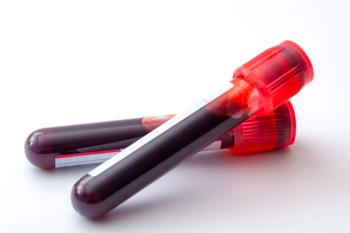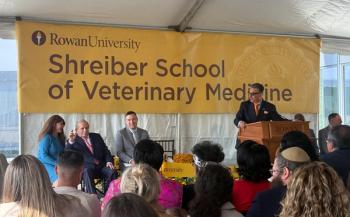
Tennessee walking horse group finally accepts federal soring protocol
S.H.O.W horse industry organization carries out inspections in conjunction with USDA veterinary medical officers during National Celebration event.
After a yearlong lawsuit challenging the U.S. Department of Agriculture’s (USDA’s) minimum penalty protocol for horse soring, S.H.O.W., a horse industry organization (HIO) licensed by the USDA to enforce industry regulations, has surrendered to the court’s decision. The judge ruled that the USDA protocol amending the federal Horse Protection Act last year was a valid requirement for S.H.O.W. and any horse industry organization wanting to retain certification with the USDA.
The ruling and S.H.O.W.’s subsequent compliance came just before the start of 75th annual Tennessee Walking Horse National Celebration Aug. 21-31 in Shelbyville, Tenn. Known as The Celebration, it is the premiere event for Tennessee walking horse competition, and this year S.H.O.W. carried out inspections working jointly with USDA veterinary medical officers. Tanya Espinosa, public affairs specialist with the USDA’s Animal and Plant Health Inspection Service, says the officers are there to ensure that any horse that has been sored—had its forelegs blistered or irritated in order to achieve a more pronounced gait—is not shown. “We will continue to work jointly to end the inhumane practice of soring horses as well as promote fair competition within the industry,” Espinosa said in an e-mail to dvm360.
A S.H.O.W. spokesperson who spoke to dvm360 on condition of anonymity says there has been “unprecedented cooperation” between the organization and the USDA. “Despite what detractors claim, the inspections go smoothly with or without the USDA present,” the spoksperson says. He adds that S.H.O.W. does not disagree with penalties for violations of the Horse Protection Act but filed the lawsuit because it believes the requirments will create a negative impact on the reform efforts the Tennessee walking horse community is actively working toward. “The best way to ensure safety of the horse is to have strict inspections and harsh penalties across the board, but this new protocol will reward the horse industry organizations with the least restrictive inspections,” the S.H.O.W. spokesperson says.
Ron DeHaven, DVM, MBA, executive vice president of the American Veterinary Medical Association (AVMA), said last year that a system in which horse industry organizations police themselves creates an inherent conflict of interest. “We have a basic problem of the fox watching the hen house,” he has said. S.H.O.W., however, claims to implement the strictest inspection process and the strongest penalties in the industry.
On Aug. 28, the USDA’s Espinosa said, “As of Sunday, August 25, USDA has found 53 horses that were in violation of the Horse Protection Act. These violations include scar rule violations, foreign substance, unilateral soring, bilateral soring, high banding and illegal shoeing.”
The S.H.O.W. spokesperson contends that only 26 of the 1,340 horses presented for inspection as of end of day Aug. 28 were forbidden to show at The Celebration for violations. “Those are great numbers considering the subjectivity of testing,” he says, adding that a violation does not necessarily mean a horse has been sored. He says, for example, an infraction could be a violation of equipment size.
Nearly 3,000 horses compete at The Celebration, which draws more than 150,000 fans each year. Last year S.H.O.W. was mired in the USDA decertification process after it refused to adopt the new minimum penalty protocol. Since then, the PAST Act—H.R. 1518, the Prevent All Soring Tactics Act of 2013—was introduced and is currently making its way through the U.S. Legislature. The bill is listed as “top priority for passage” on the AVMA’S recently released legislative agenda. The AVMA and the American Association of Equine Practitioners (AAEP) continue to support efforts to strengthen penalties for soring and improve USDA enforcement of the Horse Protection Act. The two associations partnered to host a “lunch and learn” event in July for Capitol Hill staff in Washington, D.C., to explain what soring is and why it is important that members of Congress support the PAST Act.
AAEP President Ann Dwyer, DVM, has stated that a “culture of abuse” continues to exist in the walking horse performance show industry. “Despite more than 40 years after the Horse Protection Act, which made soring illegal in shows, sales or exhibits, the horse show industry has failed to police itself,” Dwyer says. “A sored gait is still rewarded in the show ring.”
The S.H.O.W. spokesperson says the organization is making major strides in protecting the welfare of the horse. “Continuing to make the horse the top priority and making sure that no trainers who harm horses are allowed in the ring is the goal,” he says. “With a close to 98 percent compliance rate, we are getting closer every day.”
Newsletter
From exam room tips to practice management insights, get trusted veterinary news delivered straight to your inbox—subscribe to dvm360.






